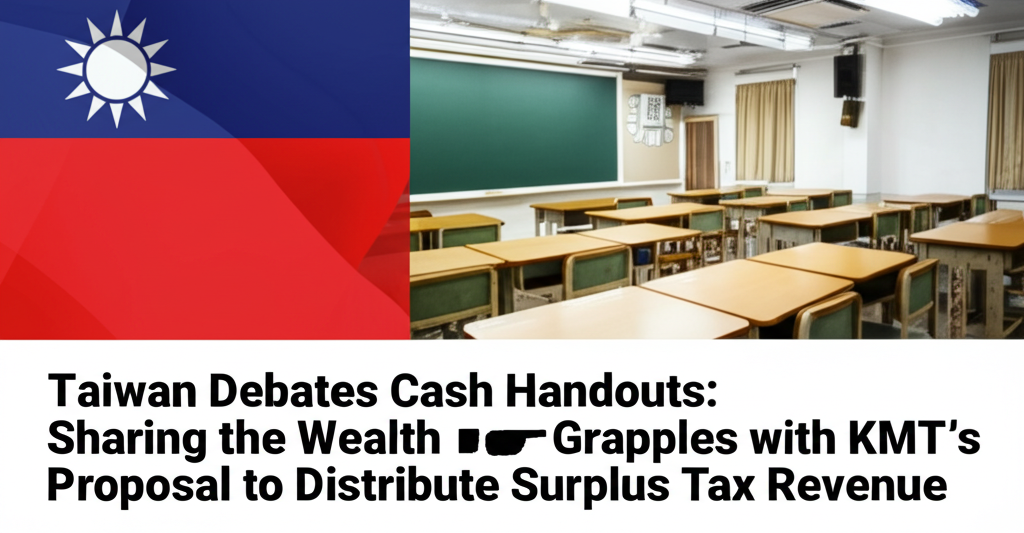Taiwan Debates Cash Handouts: Sharing the Wealth or Fiscal Prudence?
Legislative Committee Grapples with KMT's Proposal to Distribute Surplus Tax Revenue.

Taipei, Taiwan - The Legislative Yuan's Finance Committee held a preliminary hearing on March 24th, sparking a lively debate about the distribution of Taiwan's surplus tax revenue. The core of the discussion revolves around Kuomintang (KMT) proposals to allocate excess funds directly to the public through cash handouts.
The KMT, in collaboration with the smaller Taiwan People's Party (TPP), which controls the Legislature, has put forth twin proposals to amend the Surplus Act. These amendments would mandate cash distributions to the public if actual tax revenues surpass budget estimates by 120% or reach NT$300 billion (approximately US$9.08 billion).
This debate is particularly pertinent given the record-breaking tax collection in fiscal year 2024, which reached NT$3.7619 trillion. This figure exceeded the anticipated revenue by NT$528.3 billion.
The KMT has previously suggested individual handouts of NT$10,000, a move estimated to cost a total of NT$230 billion. This is a substantial consideration amid competing priorities.
The ruling Democratic Progressive Party (DPP)-led government, however, has offered alternative suggestions. These include using the surplus to pay down national debt, earmarking the funds for future use, or bolstering the national defense budget, reflecting a different approach to fiscal management.
During the hearing, KMT lawmaker Lo Ming-tsai (羅明才) argued that the public deserves to share in Taiwan's economic success, highlighting that cash handout programs have precedents in countries such as Japan, Singapore, Hong Kong, Macau, and the United States.
DPP Legislator Wu Ping-jui (吳秉叡), however, raised concerns about the constitutionality of the KMT's proposals. He pointed out the Legislature's limitations on budgetary bills and suggested the KMT's amendment was attempting to bypass these restrictions. He was not the only dissenter, as Juan Ching-hua (阮清華), a political deputy minister at the Ministry of Finance, cautioned that higher tax revenues don't guarantee fiscal stability.
Juan Ching-hua (阮清華) emphasized Taiwan's history of budget deficits, with surpluses only appearing three times between 2012 and 2023. He expressed the potential for the proposed legislation to compel the government to borrow money for handouts even if spending needs still exceed the tax revenue.
Despite the differing viewpoints, the committee moved the proposals forward for consideration in the full Legislature on Friday. Cross-party negotiations will be held with the TPP, according to committee chair Lai Shyh-bao (賴士葆) of the KMT, to address their proposed amendments to the law.
